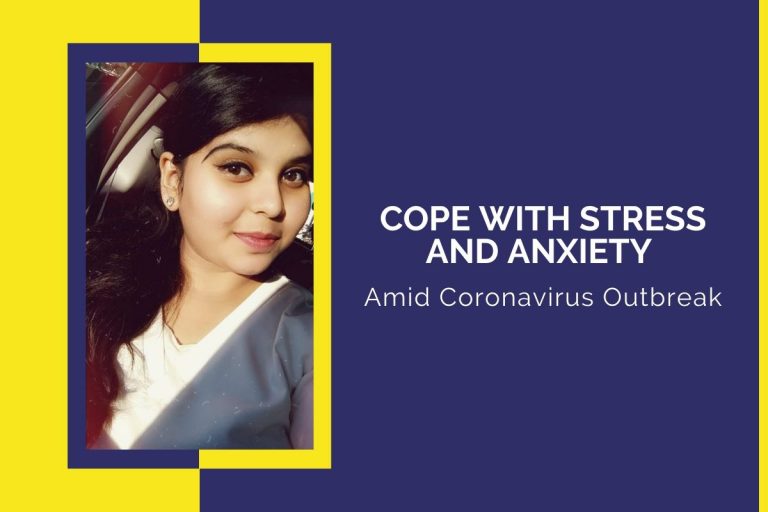“What we achieve inwardly will change the outer reality.”
– Plutarch
In January 2020, WHO declared the outbreak of a new coronavirus disease (COVID-19) as a public health emergency of international concern. WHO stated that there is a high risk of COVID-19 spreading to other countries around the world. In March 2020, WHO made the assessment that COVID-19 can be characterized as a pandemic. However, this time of crisis is generating stress throughout the population. Infectious disease outbreaks, like the current coronavirus, can be scary and can affect our mental health.
Amid This COVID-19 Pandemic, the World Needs to Cope with Stress and Anxiety!
The COVID-19 pandemic can cause stress and anxiety because it is disrupting the normal life of many people, all at once. While it is important to be informed and to take action to limit the spread of infection, the amount of information and attention on this topic can increase stress and anxiety.
What Does Stress Mean?
Stress is a normal physiological response to an abnormal situation.
What Does Anxiety Mean?
Contrary to fear, which is a response to a well-defined and very real threat, anxiety is a response to a vague or unknown threat.
Outbreaks Can Be Stressful
The outbreak of COVID-19 may be stressful for people. Fear and anxiety about a disease can be overwhelming and cause strong emotions in adults and children. Coping with stress will make you, the people you care about, and your community stronger. Stress during an infectious disease outbreak can include:
- fear and worry about your own health and the health of your loved ones,
- changes in sleep or eating patterns,
- difficulty sleeping or concentrating,
- worsening of chronic health problems,
- worsening of mental health conditions, and
- increased use of alcohol, tobacco, or other drugs.
Ways to Cope with Coronavirus Stress
- Take breaks from watching, reading, or listening to news stories, including social media because hearing about the pandemic repeatedly can be upsetting
- Follow as normal a schedule as possible
- Start a new hobby
- Believe that the pandemic will long for short term
- Take religious congregational care
- Take care of your body:
- Take deep breaths, stretch, or meditate external icon
- Try to eat healthy, well-balanced meals
- Exercise regularly and get plenty of sleep
- Avoid alcohol and drugs external icon
- Make time to unwind
- Try to do some other activities you enjoy
- Connect with others
- Talk to people you trust about your concerns and how you are feeling
Ways to Cope with Coronavirus Anxiety
- Go for a walk
- Sit with nature and take deep breaths
- Exercise regularly and hard. Anxiety has trouble holding on when you are getting your blood flowing.
- Listen to music. It doesn’t matter if it’s a headbanger or a calming song. The key is to transport yourself to a place in your head where you feel safe and happy. Music memory can do this successfully.
- If no one in your household is contagious or been in contact with anyone, it is good to share a hug with someone you trust. If this is not possible, give a friend or family member thumbs-up signs, blow kisses, wink, or anything that involves acknowledgment and shows that you care.
You still can’t cope? Now what? Sometimes, even after trying to reduce our stress and anxiety, we may continue to struggle. If you still feel significant distress around COVID-19 and feel you are not coping well, you may need extra support from someone like your family doctor or a psychologist, psychotherapist, social worker, or other health professional.
It’s okay to feel unstable; it’s okay to disassociate; it’s okay not to be okay; your mental illness is not a personal failure.
Stay safe and stay connected. Together, we are strong!




